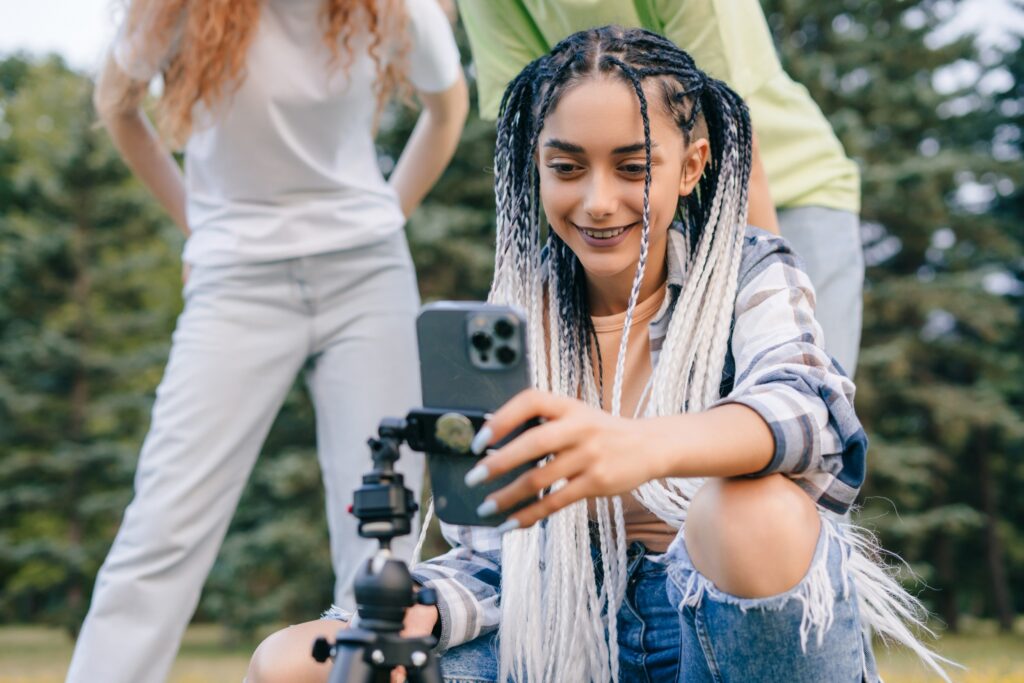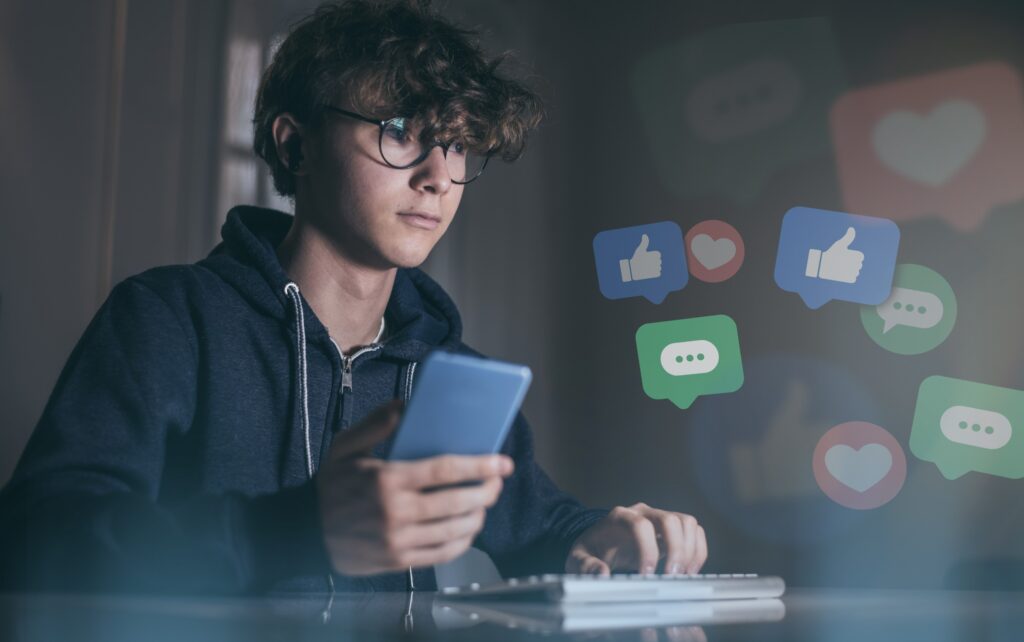Social Media Challenge Severe Depression and Life-Ending Lawsuit Attorneys

Is your child struggling with serious depression or engaging in self-ending behaviors after using a social media platform? You’re not alone. Social media challenge lawsuits were established out of a desire to hold social media companies, like TikTok owners ByteDance, accountable for contributing to various physical and mental health issues in youth, such as serious depression, attempted suicide, and death by suicide.
As dedicated juvenile advocates, our social media challenge lawsuit attorneys strive to secure justice for those impacted by severe mood disorders and self-harm suffered in association with the use of TikTok and other social media platforms. Per a September – October 2023 survey conducted by Pew Research Center, nearly 1 in 5 teens (ages 13 to 17) say they’re on YouTube and TikTok ‘almost constantly.’ Unfortunately, these levels of usage pose significant risks to young people.
For a free case evaluation and to explore your legal options, contact Lerner and Rowe Injury Attorneys today. Schedule a free consultation 24/7 by calling 844-977-1900, using LiveChat, and via secure FREE online form. Let us help you hold the owners and affiliated companies for social media platforms accountable for their roles in harming your child or teen.
Why Are Severe Depression and Life-Ending Social Media Challenge Lawsuits Being Filed?
Current lawsuits against ByteDance claim that TikTok has failed to implement adequate safety measures to protect young users from these dangers.
TikTok, and other social media platforms, carry risks for users, particularly children and teenagers, whose brains are still developing. These younger users are more vulnerable to engaging in dangerous trends, challenges, and content that may negatively impact their self-esteem.
The harmful effects to young users of social media platforms have been linked to severe depression, attempted suicide, and death by suicide.
Has TikTok, Facebook, Instagram, YouTube, or another social media platform negatively impacted your child’s life? Contact Lerner and Rowe to learn if you qualify for a lawsuit.
TikTok Lawsuit: Liability and TikTok’s Algorithm

The lawsuit against ByteDance highlights the potential legal implications of social media platforms’ algorithms. If it can be proven that TikTok’s algorithm directly recommended harmful content to a vulnerable user, leading to tragic consequences, the platform could face significant legal liability. This case raises critical questions about the extent to which platforms should be held accountable for the content they curate.
How does TikTok’s algorithm operate?
TikTok’s algorithm delivers personalized content by analyzing users’ engagement, including likes, shares, and watch history. It recommends videos based on this data. In a TikTok challenge lawsuit, the algorithm allegedly promoted the “blackout challenge” to a 10-year-old girl, leading to her wrongful death.
Recent Ruling in TikTok Lawsuit “Blackout Challenge” Case
On August 27, 2024, the U.S. Court of Appeals for the Third Circuit overturned a previous decision to dismiss the case against TikTok involving the tragic death of the 10-year-old girl who participated in the “blackout challenge.” The court ruled that TikTok’s recommendation of harmful content is not protected under Section 230 of the Communications Decency Act, setting a precedent for future cases.
What is the “blackout challenge?”
This social media challenge encourages participants to intentionally restrict their breathing until they pass out. This risky activity has been associated with numerous injuries and fatalities, particularly among younger users.
Per the Centers for Disease Control and Prevention (CDC), more than 80 deaths were linked back to the “blackout challenge” when it first emerged in 2008. Thirteen years later, in 2021, the “blackout challenge” trend was introduced on TikTok.
In a disturbing November 2022 report, Bloomberg Businessweek connected the ‘blackout challenge’ to the tragic deaths of 20 children under the age of 15.
The blackout challenge is just one of many dangerous social media challenges to go viral. Others include:
- Car surfing challenge
- Cha-Cha Slide challenge
- Tide pod challenge
- Benadryl challenge
- Fire challenge
- Kiki challenge
- Skull breaker challenge
- Ice and salt challenge
- Plank challenge
- Milk crate challenge
- Full face wax challenge
- Back cracking challenge
What is Section 230, and why is it relevant to this case?
Section 230 of the Communications Decency Act protects online platforms from being held liable for content posted by users. However, recent court rulings suggest that platforms could be held accountable for content promoted by their algorithms, meaning that Section 230 may not shield them in cases involving algorithm-driven recommendations.
How to File a Social Media Challenge Severe Depression, Attempted Suicide, or Life-Ending Lawsuit
Children or teens who have been directly harmed by TikTok and other social media platform’s failure to create a safe environment may be eligible to file a social media challenge lawsuit. Lerner and Rowe helps victims navigate the complex legal process and seek compensation for damages, including medical treatment bills, emotional distress, funeral expenses, and other losses.
A Lerner and Rowe lawyer can evaluate your case to determine if the social media platform’s negligence played a role in the mental and physical harm caused to your child. Our team can also provide guidance through the legal process, assist with collecting necessary evidence, and pursue compensation by holding the platform responsible for its role in the injury or harm through a social media challenge lawsuit.
Don’t delay! Contact us for your free, no obligation evaluation. You won’t pay a fee unless compensation is won on your behalf.



